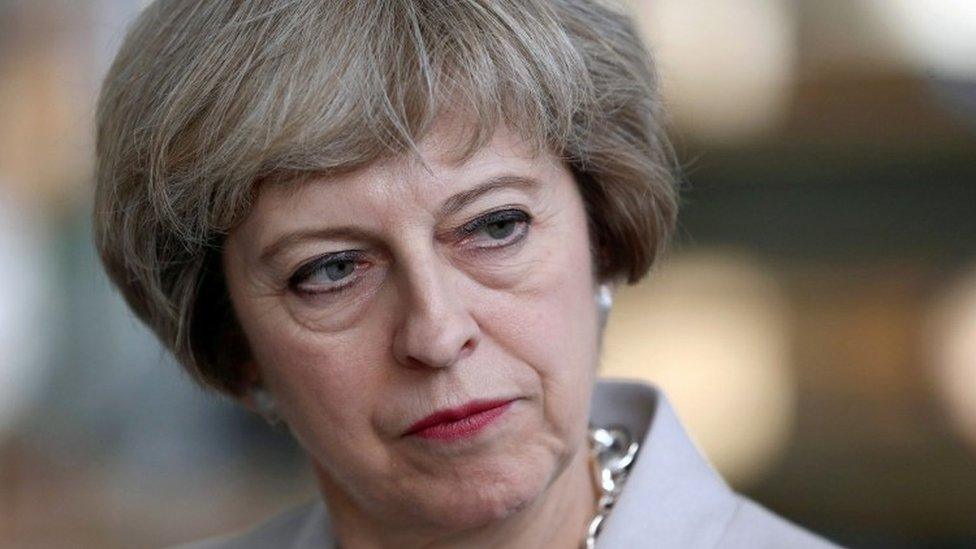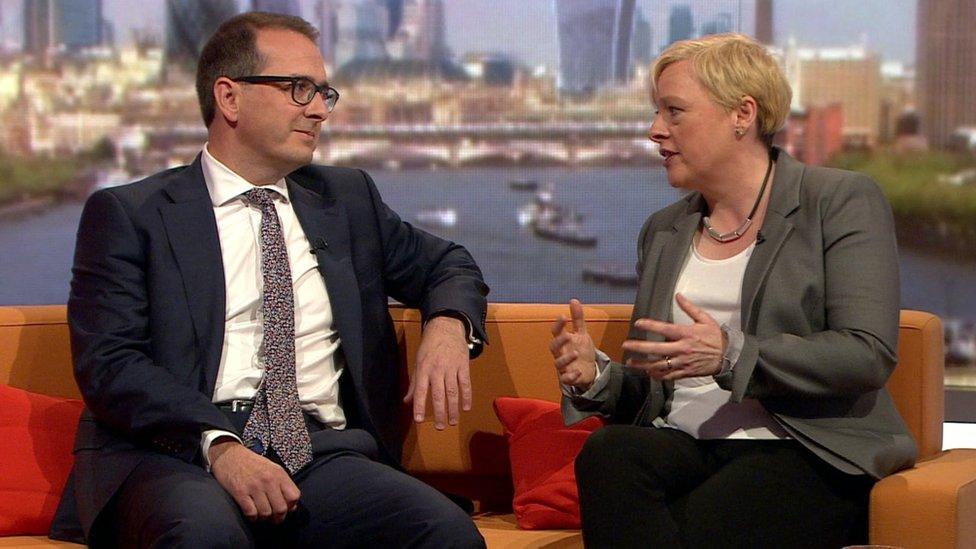Theresa May launches race audit of public services
- Published

Prime Minister Theresa May has ordered a review into how ethnic minorities and white working class people are treated by public services such as the NHS, schools, police and the courts.
The audit is aimed at highlighting racial and socio-economic disparities and showing how outcomes differ due to background, class, gender and income.
The prime minister said the findings would "shine a light on injustices".
A recent report found racial inequality remained "entrenched" in Britain.
The Equality and Human Rights Commission, which analysed existing evidence, external, said black graduates earn on average 23% less than white ones and are far more likely to be unemployed.
Entering Downing Street for the first time as prime minister last month, Mrs May acknowledged not everyone was treated equally in society and there were too many cases of "burning injustices" arising from people's race and background.
Transparency
In her first announcement since returning from her summer holiday, Mrs May ordered government departments to identify and publish details of the varying experiences and outcomes of different groups when using public services.
The information, which will be published within a year and updated annually after that, will cover health, education, employment, welfare, skills and criminal justice.

The new prime minister has said she will be a "one nation" leader
Downing Street said the audit would be unprecedented in its scope and transparency, enabling the public to hold public services to account and force improvements.
Announcing the review - to be conducted by a new unit within the Cabinet Office - No 10 said it was unacceptable that black women were still seven times more likely to be detained under mental health laws than white women, and that the employment rate for ethnic minorities was 10% lower than the national average.
'Difficult truths'
The evaluation will also look into the disadvantages experienced by white working class boys in the school and university system, as well as inequalities linked to geographical location, such as inner cities and coastal towns.
"The government I lead will stand up for you and your family against injustice and inequality," Mrs May said.
"This audit will reveal difficult truths but we should not be apologetic about shining a light on injustices as never before.
"It is only by doing so we can make this country work for everyone not just a privileged few."
As home secretary, Mrs May clamped down on police stop-and-search policies in black communities following the publication of Home Office data, external showing that people from black and other ethnic minority groups were seven times more likely to be stopped and searched by the police than their white counterparts.
Labour's Angela Rayner, shadow equalities minister, said there was a "huge gap" in the review because it would not address inequality in the private sector.
She said the government had been told "exactly where the problems are", and added: "We don't need an audit, we need action to stamp out racial discrimination across the board."
She accused Mrs May's government of lacking the "political will" to tackle inequality.
'Olympic approach'
Simon Woolley, director of Operation Black Vote, said he was encouraged by Mrs May's announcement, which he called a "bold" first step.
He called for an "Olympic approach" to inequality.
"Twenty years ago we won one gold medal in Atlanta, then we had an audit, then we had a comprehensive action plan. Twenty years later we're second in the world," he said.
Prof Danny Dorling, of Oxford University, said both Labour and Conservative governments had a "track record" of ordering such audits "when they don't want to do something".
"What happens is within two or three years every single one of these audits is forgotten," he said.
He said the "biggest difference in life chances in Britain is between rich and poor people", and he said Mrs May was "skirting away from that because she doesn't really want to address the fundamental difference".
- Published18 August 2016

- Published14 April 2016

- Published17 July 2016

- Published26 March 2016

- Published11 February 2016
